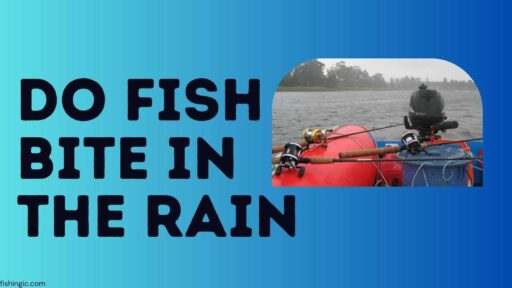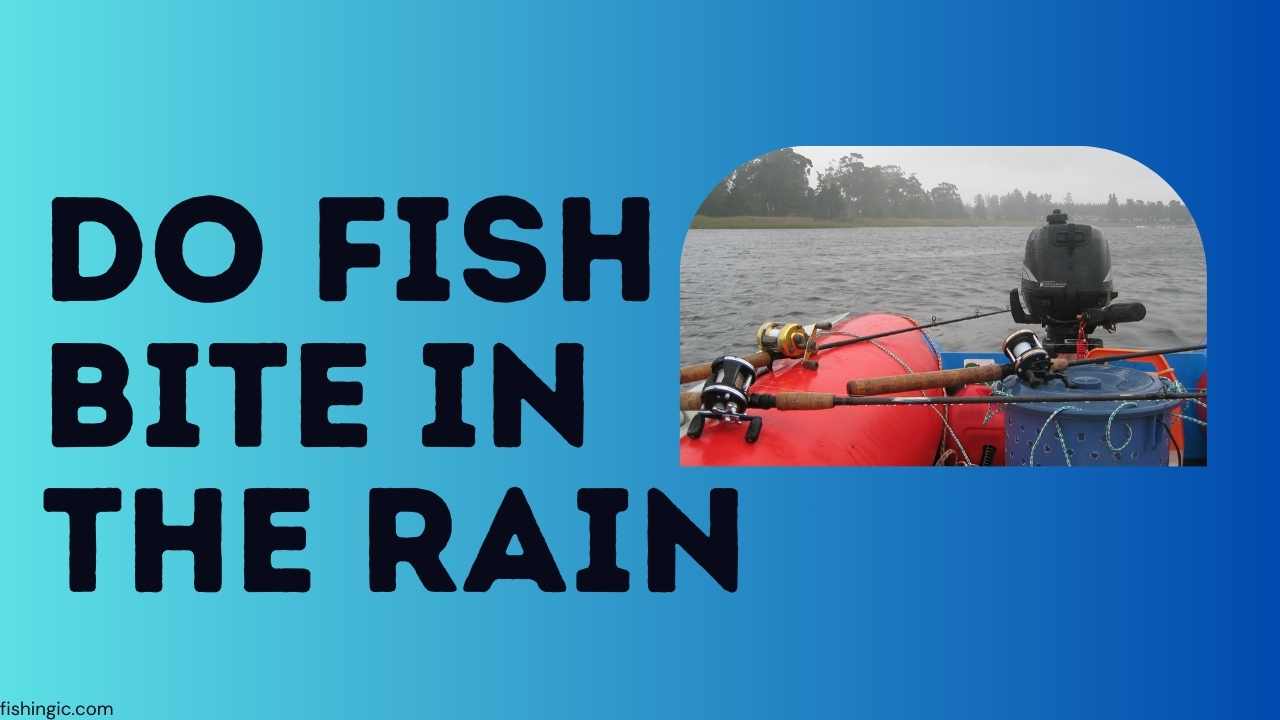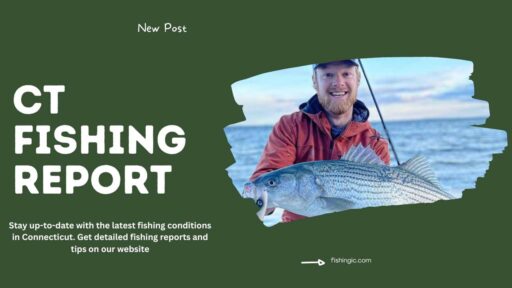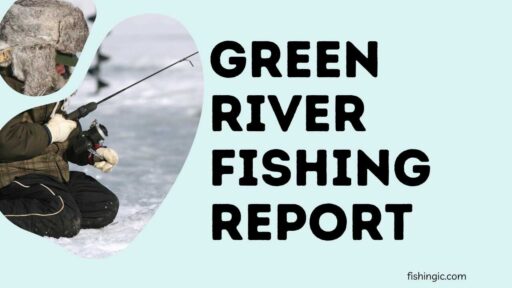Discover do fish bite in the rain with our comprehensive website. Explore tips, techniques, and expert advice to enhance your fishing experience.
Discussion to The Question of Do Fish Bite in the Rain?
Contrary to common belief, Do Fish Bite in the Rain. In fact, it can increase their activity levels. When it falls, rainwater may provide a desired change in environment for such species that prefer warmer waters as the main parts of their range. Who can resist when insects and food fall from trees and soil due to rain? They fall towards rivers and lakes, which are homes for these fishes. Hence they have more reasons to bite.
However, remember that how fishes react to rain depends on its intensity and prolongation. This means light drizzles are better for angling than heavy downpours. They don’t disturb much water surface or water tables. So, they are ideal for catching most types of fish. For instance, during heavy downpours or extended incessant rains, fish go deep or hide below things like logs and boulders. Thus, one needs to understand how different species behave in response to wet conditions to adapt.
Impact of Rain on Fishing
Weather and Atmospheric Pressure
Anglers know that weather might affect fish. Rain usually lowers barometric pressure, which boosts feeding.
Water Temperature and Visibility
Rainfall immediately cools the water. Cold rain mixes with warm water. Many species tend to exhibit feeding behavior in response to these changes. Rainfall also increases cloud cover. This reduces light penetration. It can make fishing better for some fish species. This is especially true for species sensitive to light.
Oxygen Levels in the Water
Heavy rains often lead to an increase in dissolved oxygen levels, which generally causes more active fish. But very violent storms may wash away the banks of water bodies. They put silt and other materials into the water. These might affect or kill fish.
Factors Affecting Fish Activity under Rain Conditions
However, more fish are active during rain. But, there are still many outside factors affecting fish. The key determinant is the clarity of water. For instance, when rains become heavy, mud makes it hard for the bait or lure to be seen. Use bright and scented baits. Moreover, variations in barometric pressure may also affect how fish behave. Most anglers say low air pressure before a storm causes a feeding frenzy. But, a high surge after a storm makes fish inactive.
The other thing to consider is the time of day. Typically, fish are more active at dawn and dusk when there is less light. Those conditions sometimes last for a long time, mainly during wet days, and are perfect for successful fishing. Finally, the water body you are fishing also influences fish activity. It is easier to catch fish on rainy days as rivers and streams often have faster currents. On the other hand, lakes and ponds may be stagnant in the rain, thereby requiring different tactics.
Ways of catching fish during the rainy season
We know how fishes behave in rain and what influences them. Now, let’s look at the best fishing techniques for the rainy season. One very effective technique is topwater fishing. The explanation behind this is that the rain creates ripples on the water’s surface, indicating that it’s an appropriate moment to employ topwater lures. Such baits mimic injured prey thus attracting fish that are looking for easy pickings. It is necessary to use a slow retrieve with such baits so they give natural motion on water.
Another great technique for catching fish on wet days involves using live bait like worms or minnows since insects together with other smaller organisms get washed into water by raindrops hence providing them (fish) with natural feeding areas. By opting for live bait such as worms or minnows, you can take advantage of this bounty of food and improve your chances of success. Simply cast your bait near structures where fish might take refuge and let it fall into place naturally before reeling one in.
When using artificial lures, go for bright or aromatic ones that stand out from the murky waters below you. Use spinnerbaits and crankbaits in chartreuse or orange colors, as those can lure even poor visibility situations such as cloudy waters due to heavy downpours. This means filling live wells up with soft plastics soaked in fish, attracting scents, and then letting the nose do the talking. Even though color seems irrelevant, try different baits and colorations to see which one works best for your targeted fish species.
Main fishing tools during the rainy season
The best equipment is a must-have when it comes to rain fishing, both for comfort and success. First on your list of gear should be a high-quality rain jacket. It should be waterproof but still breathable so that you can remain dry all through the whole fishing process. As well, get some waterproof pants or waders to prevent your lower body from becoming completely wet. There must also be water boots or wading shoes, as nobody likes having wet feet when you are going out on a fishing expedition.
You should also have a good fishing rod and reel. Examine the tip of the rod as you want to be able to feel even the slightest taps of fish in wet conditions. For the reel, look for one with a smooth drag system that can handle any fight from fish you hook into. It is best to use monofilament or fluorocarbon fishing lines, which do not absorb much water, unlike braided ones, as suggested here. Last but not least, bring along a waterproof tackle box where you will put your lures as well as other accessories used during fishing.
Fishing in rain tips: storage
But with these pointers, it is still possible for someone to go fishing while it is raining. So, when going out for this outdoor activity, make sure that comfort and safety are prioritized. Some important tips to help achieve these goals and yet remain safe and happy during your rainy-day fishing expedition include:
- Check the weather forecast: This provides information on potential thunderstorms and other severe weather conditions; therefore, always look at the weather reports before leaving home. Being prepared is better than risking fishing in dangerous weather.
- Dress appropriately: Put on lightweight moisture-wicking attire that will keep you dry and comfortable so that you can change accordingly depending on either temperature rise or intensity of rainfall.
- Protect your gear: Anglers should purchase waterproof cases if they have electronics such as phones, cameras, or GPS devices. On the other hand, a cover for their tackle box will also keep everything dry even if it rains.
- Stay grounded: Wet surfaces are slippery; hence, shoes with good grip must be worn at all times. Do not fish near rapidly moving waters or flash flood-prone areas.
- Take breaks: Take regular breaks if necessary and rest while warming up along this physically demanding sport. Drinking water often prevents dehydration, besides eating snacks that maintain energy levels.
Should individuals heed these recommendations they will certainly have an enjoyable day’s fishing experience regardless of how unfavorable the climate might be.
Rain myths
There are a number of misconceptions about fishing in the rain that still exist today; some of them are:
- Myth: Fish don’t bite in the rain. Reality: As seen earlier, fish become more active and are more likely to bite when it rains than at any other time.
- Myth: Lightning never strikes water, so it is safe for anglers to cast their lines even when there is a thunderstorm above them. Reality: Any angler who is near water bodies at a time of lightning being experienced can be struck by lightning. Always find shelter and wait until the thunderstorm subsides.
- Myth: Rainwater scares fish away. Reality: Food gets washed into the water by rain, therefore making it a rich feeding ground for fish.
- Myth: Fish can’t see your bait in murky water. Reality: Your bait will be located by fish through olfactory cues and vibrations when visibility is poor because the waters are muddy.
Once you know these misconceptions, people misunderstand fishing in the rain; engaging in this activity with confidence should yield good results.
Real-life triumphs of fishing in the rain
Allow me to share a few instances of real life success which illustrate why it is worth trying to fish while raining.
John, who was an experienced angler, went out to his favorite fishing spot on a rainy day. He used available topwater and cast across the water body. It only took him minutes before he had hooked a huge bass that gave him exciting moments as he tried to bring it into his boat. For John, this would not have been possible without rain that offered the best conditions for topwater fishing.
For instance, Sarah, who was very new at fishing, attempted her hand on it one day during a light drizzle. She simply baited live worms onto hooks and threw them towards fallen trees by river banks. In the beginning, she thought she had been lucky when within three hours she caught four trouts but finally admitted that luck was all over!
These successful stories show that on rainy days fishing can still be unforgettable. Do not allow rain to discourage you; instead, accept it and get ready for an interesting experience.
Tips from the experts on catching more fish during rainy seasons
To help improve your odds of landing something good in weather like this, I interviewed Dr Mark Fisher, who is one of the most renowned fishermen known around. Some suggestions he made were as follows:
Change your approach: According to Dr Fisher’s ad, vice anglers should become slower and softer-voiced while carrying out their routine activities during r.aFishinghing in such situations would require other unusual techniques besides constant aggression.
Spot structures and cover: Rock piles, fallen logs, weeds are ideal areas for finding fish during rainfall according to Dr. Fisher emphasing its importance as such places may tend to have more refuge spots than others do You must be watchful for them and choose where you cast right.
I’m suggesting making sure that you observe water temperatures throughout days of precipitation, says Dr Fisher once again, for the following reasons. Rains often warm up water thereby making fish in it more active as compared to other cold regions consequently such a measure can be used to ensure that you adapt accordingly, using a thermometer during fishing will help you know exactly what kind of temperature is needed.
Therefore, including these recommendations by an expert into your everyday schedule on a wet day might produce more fishing opportunities.
Frequently Ask Question
Is it possible to fish when it rains heavily?
When there is heavy rain, this does not mean that one should stop angling, although some changes must be made based on the situation at hand, rather than staying away from areas with shelter because most of them concentrate there during such moments.
Which kinds of fishes are normally active in rain?
However, while different species have their preferences for precipitation events basses, trout’s and catfishes are generally known to be very much reactive during such times.
Should I change lures when it is raining? In cloudy waters don’t hesitate using lures which are brightly colored or scented as they are still visible. Every type has its likes due to which test yourself with different colors and baits.
Can I go fishing during thunderstorms safely?
Fishermen should avoid venturing out especially fishing during thunderstorm due to the risk of being struck by lightning until everything calms down and they shall continue their normal activities.
Conclusion
To end with, angling in the rain can be fulfilling and electrifying. Do Fish Bite in the Rain more active as opposed to most people’s perception that they withdraw from the water. Effective fishing comes with knowing how fish behave during rainy times, the factors causing their activity, and good fishing tips. Be ready to get wet, prepare for it, and take necessary measures since this weather can also be enjoyable and delightful. Just never forget your waterproof jacket; seize your bait box because there are some fish out there waiting for you in a downpour!






